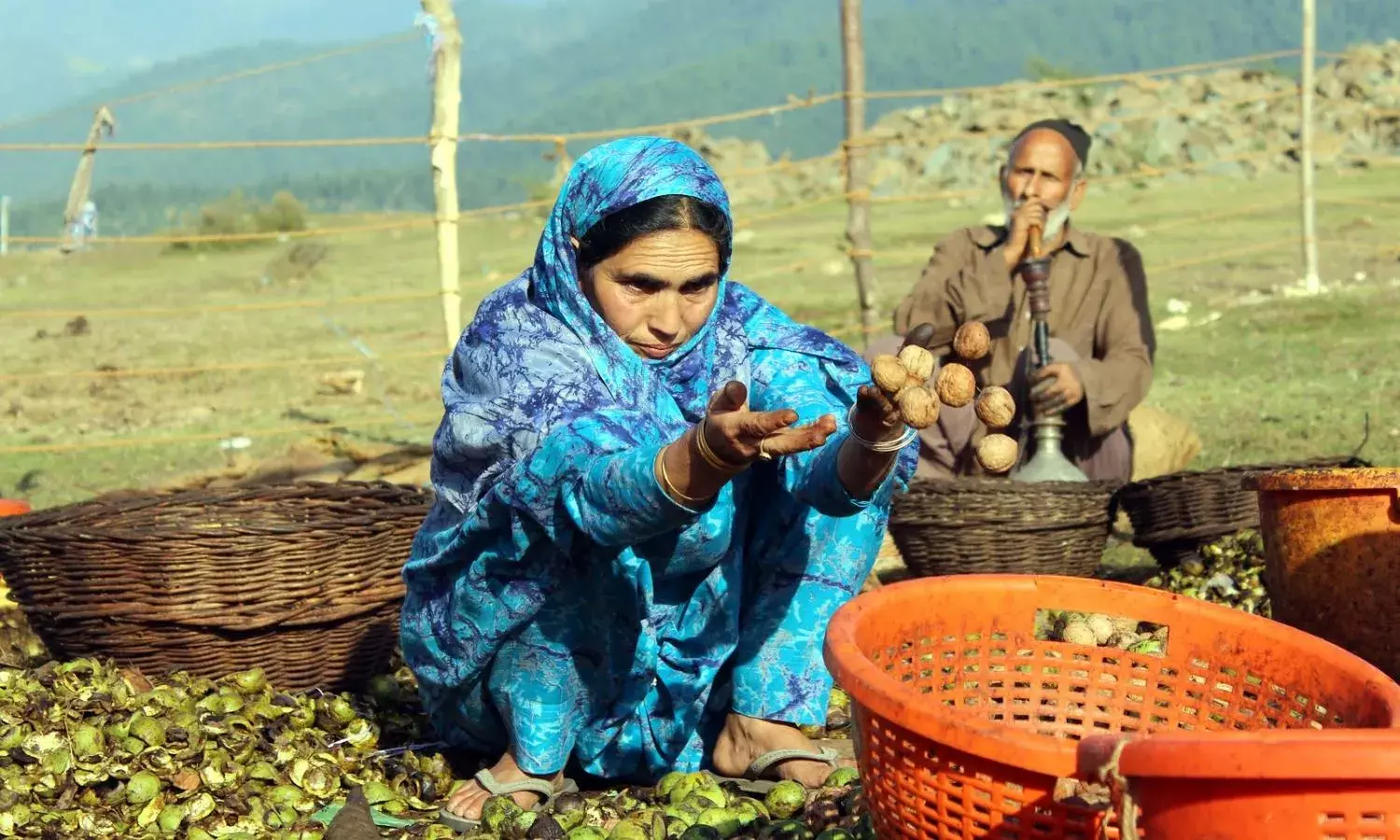Walnut Growers in Dire Straits in Kashmir
Many on the verge of starvation

September and the walnut growers are plucking the crop, but this year the harvest season started earlier than usual. Concerned about the stock, walnut growers say that with no schools around, the children are taking away their crop, in the small hours when they are not around.
Walnut growers in Kashmir are highly concerned about their stock as business was entirely down last year, and now with the Corona pandemic casting a shadow, prices may go down further this year.
They say the government must take concrete steps toward the global walnut trade, to minimise the amount of loss suffered in the recent past, helping both the government and cultivators. Adding to their worries is Covid-19, as they are staring at an already crumbled business due to the nationwide lockdown. Despite a good yield, they are facing a massive loss due to limited demand. They have requested the government of Jammu and Kashmir to provide adequate air and railway facilities for transporting the fruit through Covid-19 restrictions.
“Our area would produce about twenty lac walnut boxes, but due to fear of Covid-19 and fewer buyers around, we are worried about our produce,” said Bashir Ahmad, a walnut grower from Anantnag
“The government should introduce a scheme in our favour so our produce is secured,” said Nazir Ahmad, who is part of a group of walnut growers.
Growers say the government should buy walnuts directly from them, to nullify the role of middlemen. Only then will they benefit from their produce.
The growers have started plucking the crop, but it is not as easy as it looks, quite a tough job, as the one who plucks the walnuts has to reach the top of the tree.
The process involves beating the fruit bearing branch with a long stick. Then comes the drying process, which is done in the open field under the sky for almost a week.
The drying process is done after peeling the outer cover.
Kashmiri walnuts, widely known for their superior taste and quality, are in great demand worldwide.
The plantation of walnut is done by seedlings and with very little effort bestows plentiful nuts.
The advantage of the nut of the walnut is that it has a long shelf life.
Kashmir enjoys the status of being a major contributor to the export of walnut from India. Walnuts grown in the Kashmir Valley are certified to be organic.
Each year India produces 40–45,000 tonnes of walnut, with Uri, Baramulla, Anantnag, Pulwama, Budgam, Kupwara, Srinagar, Doda, Poonch, Udhampur and Rajouri being the major growing centres, accounting for over 90% of the country’s total production.
Over 89,000 hectares of land are under walnut cultivation in the Valley.
Walnut cultivators have sought the government’s attention and asked for satisfactory rates so that the losses suffered last year aren’t repeated.
Many of them are on the verge of starvation after investing huge amounts in the walnut business, while they haven’t earned anything yet.



